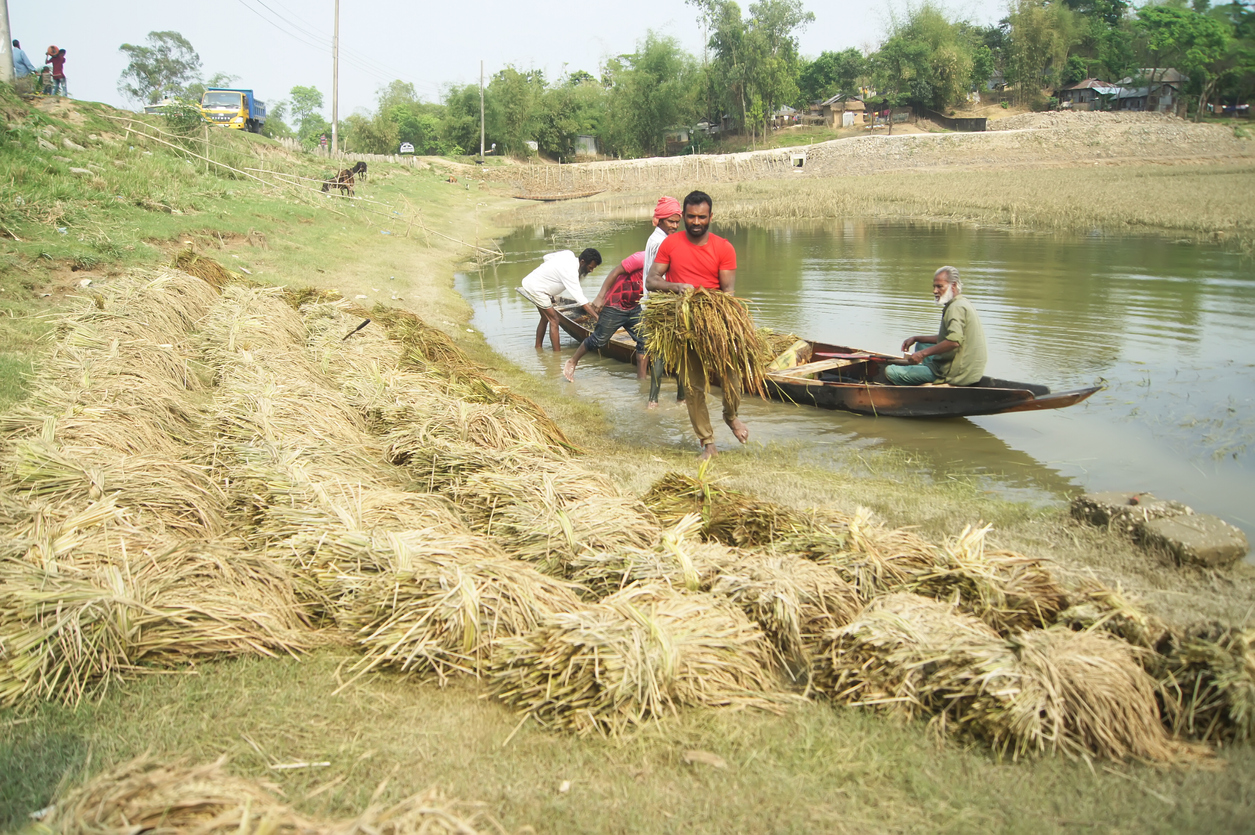An agenda for farm sector
The key to a satisfactory food and farming system is to bring together and promote at the same time the four most important concerns of protecting livelihoods, environment, biodiversity, and food safety.
Lakhimani Murmu is an active member of Maniyardi Kadamjharna SHG (self-help group) in Maniyardi Village of Binpur, Jhargram. Lakhimani lives in a mud house surrounded by forest, with her husband and two sons.

Representation image (Photo: iStock)
Lakhimani Murmu is an active member of Maniyardi Kadamjharna SHG (self-help group) in Maniyardi Village of Binpur, Jhargram. Lakhimani lives in a mud house surrounded by forest, with her husband and two sons. Like most of the smallholder farmers belonging to the scheduled tribes, Lakhimani had very little land for growing crops. Thus, producing for their own needs was the first priority, and planning for any other crop than paddy was a luxury for her. A couple of years ago smallholder farmers like Lakhimani began to take hesitant steps toward vegetable farming to supplement their income. On the other hand, high price fluctuations of tomato, green chilli and brinjal led farmers to incur losses. Looking for higher-price markets would leave the crops to rot, or the farmers would have to sell them at a price available in the local market.
When Pradan introduced collective green chilli cultivation, Lakhimani showed courage to come forward to grow it on a 0.1-acre land and earned Rs 4,000 profit. Pradan organized an exposure visit to gain insights on vegetable farming and marketing directly from farmers. It was felt that Guntur’s dry red chilli was very apt for this black soil region, especially the Tejaswini variety, which could help farmers overcome the challenges of crop damage, price fluctuation and loss of crop (due to its longer shelf-life). The aim was to connect with the spice market to avail a good price for the product in the monsoons.
Pradan is a national support organisation to NRLM, the flagship rural development programme.
Advertisement
National Rural Livelihoods Mission (DAY-NRLM) is the flagship programme of the Ministry of Rural Development (MoRD) for promoting poverty reduction through building strong institutions for the poor, particularly women, and enabling these institutions to access a range of financial services
Lakhimani (53) was hesitant to take the risk to cultivate a new crop. Despite her concerns, she prepared her 0.1 acres of fallow land for the red crop, seeing the recent green chilli success in the area. To reduce her risk, she sowed turmeric seeds in another 0.09 acres of land as per guidance. In 2020, she transplanted 1,200 dry red chilli seedlings and 135kg of turmeric. After 40 days of transplantation, flowers bloomed in her red-chilli plants and in two months’ time; she took to plucking and selling them after drying the chillies. A second plucking followed after three weeks.
In order to mitigate the impact of price fluctuations on farmers, a farmer producer organization (FPO) named Junglemahal Sabujsathi Mahila Producer Company was formed under the project, ‘livelihoods enhancement through market access and women empowerment’ (LEAP), supported by Walmart Foundation. The FPO helped in negotiating the price for Lakhimani’s dry red chillies.
From a capital investment of Rs 2,500, Lakhimani’s profit was nearly Rs 10,000. Red chilli was the beginning; she had her turmeric plants waiting to be harvested. After a period of 10 months, she harvested 104kg from 20kg of seeds. She sold half of her harvest to the FPO at the rate of Rs 38/kg and kept the remaining plants for the next year to be harvested. Lakhimani earned a profit of Rs 3,152.
Besides harvesting the remaining turmeric, she along with other farmers of Maniyardi village will be growing red chillies and tomatoes on 0.19 acres of her land this year with support from the FPO. The FPO has already procured 2.3 tonnes of turmeric seeds. Eight agriculture entrepreneurs (farmers who have come forward as an entrepreneur to raise healthy saplings) have raised 50,500 Tejaswini saplings with the aim of providing healthy and disease-free saplings to their farmers.
Pradan is working in three districts of the state.
There is also Jharnamoni Murmu, who like Lakhimani is also utilising this benefit. She is sowing kerela on 25 decimal of land, mustard (168 decimal, brinjal Kharif (21 decimal), brinjal Rabi (20 decimal, bottle gourd (42 decimal).
Apart from red chilli Lakhimani is also planting watermelon on 42 decimals and other crops.
Prof Prasanta K Patra of Bidhan Chandra Krishi Viswavidyalaya, who has stayed in Jhargram and worked there, said, “Binpur has poor soil since it falls in the area with high humidity and rainfall (extreme conditions). The decomposition rate is very high which is a factor for the less carbon content in the soil. Rigorous cultivation has led to the organic carbon content falling down. Farmers also cannot apply organic manure due to socio-economic reasons and are more dependent on NPK (nitrogen, phosphorus, potassium). The soil type is not only hungry, it is thirsty too. There is a good market in Binpur and in Jhargram. It is good to know that the farmers are getting the price of their produce.”
Advertisement